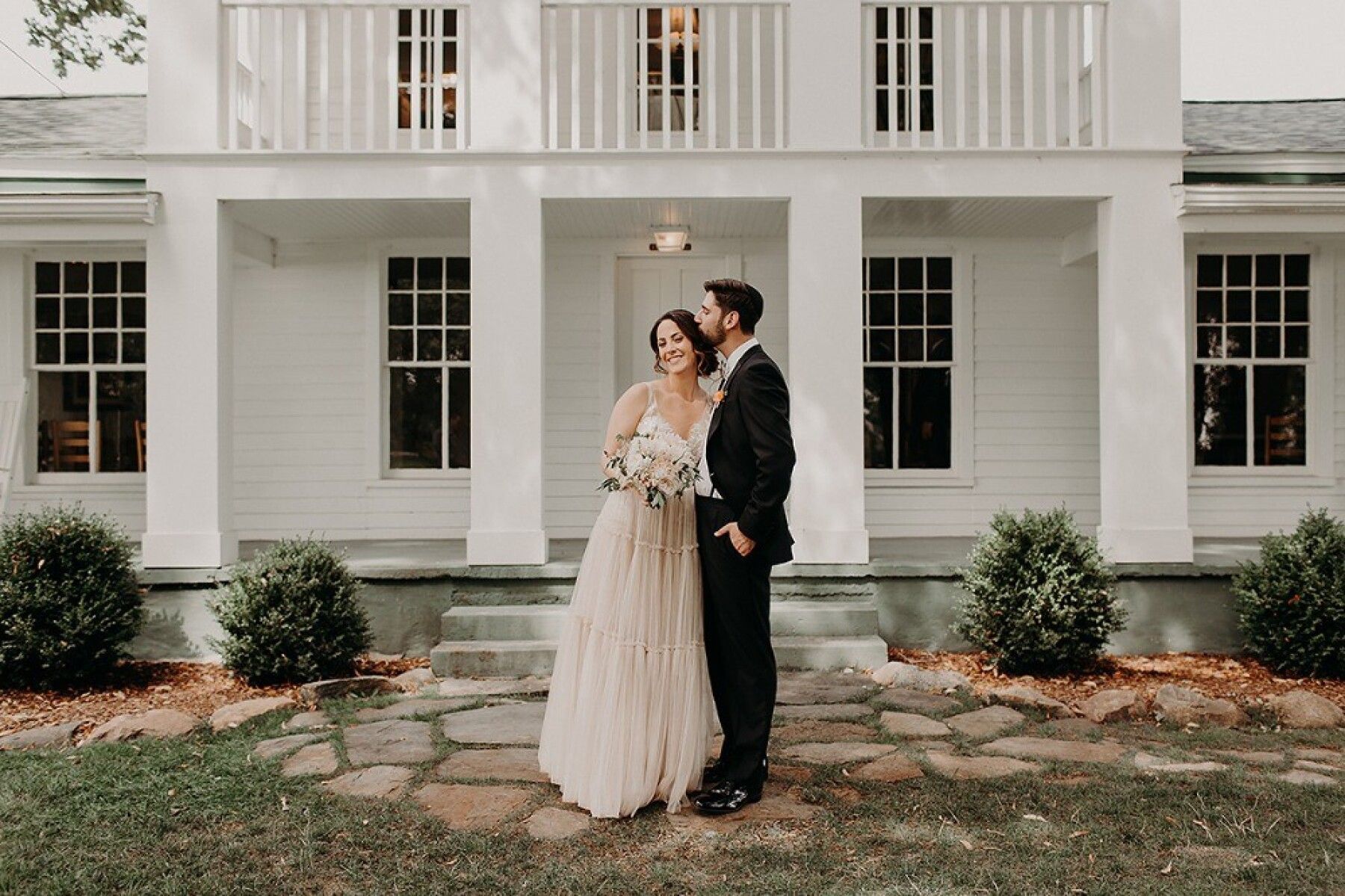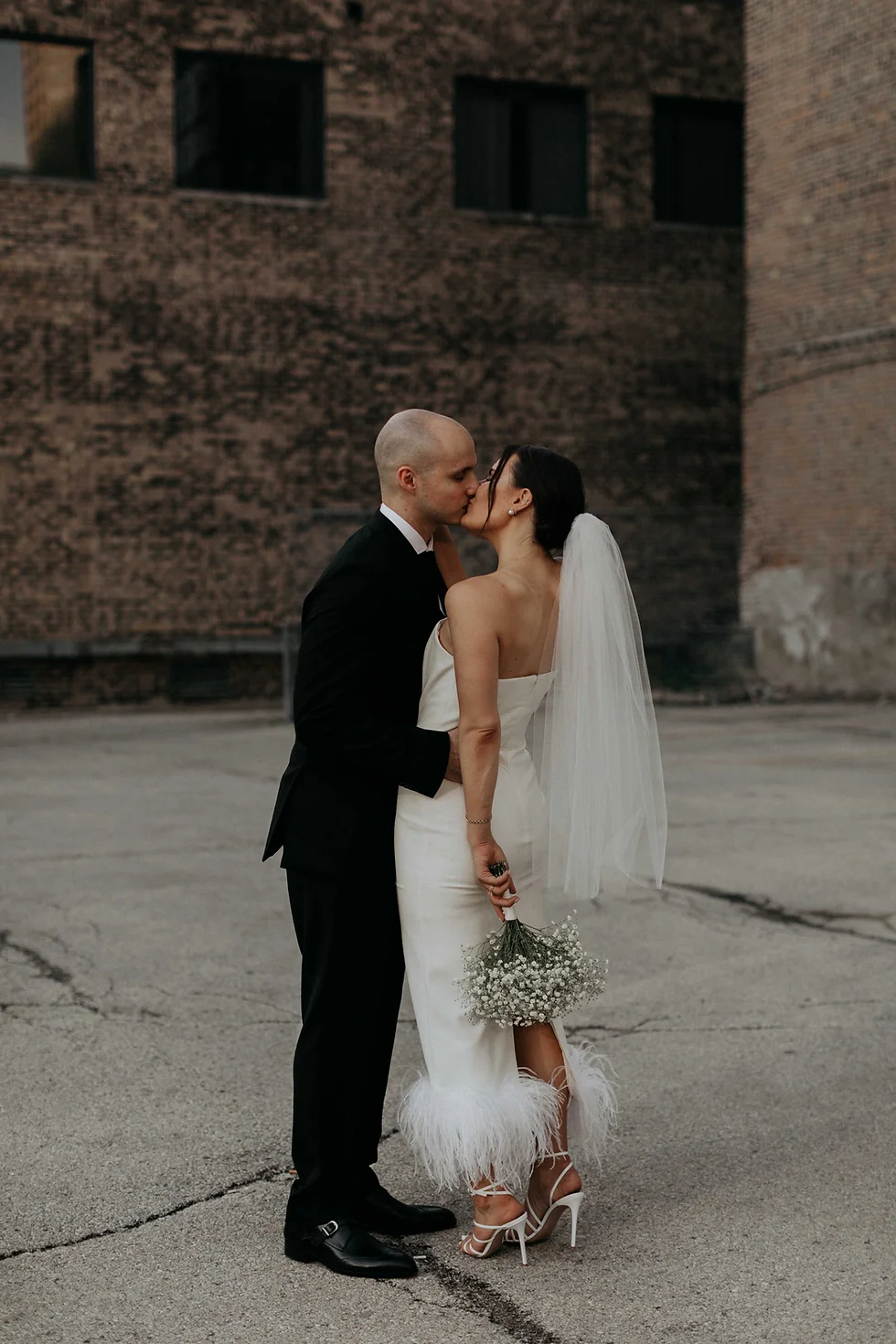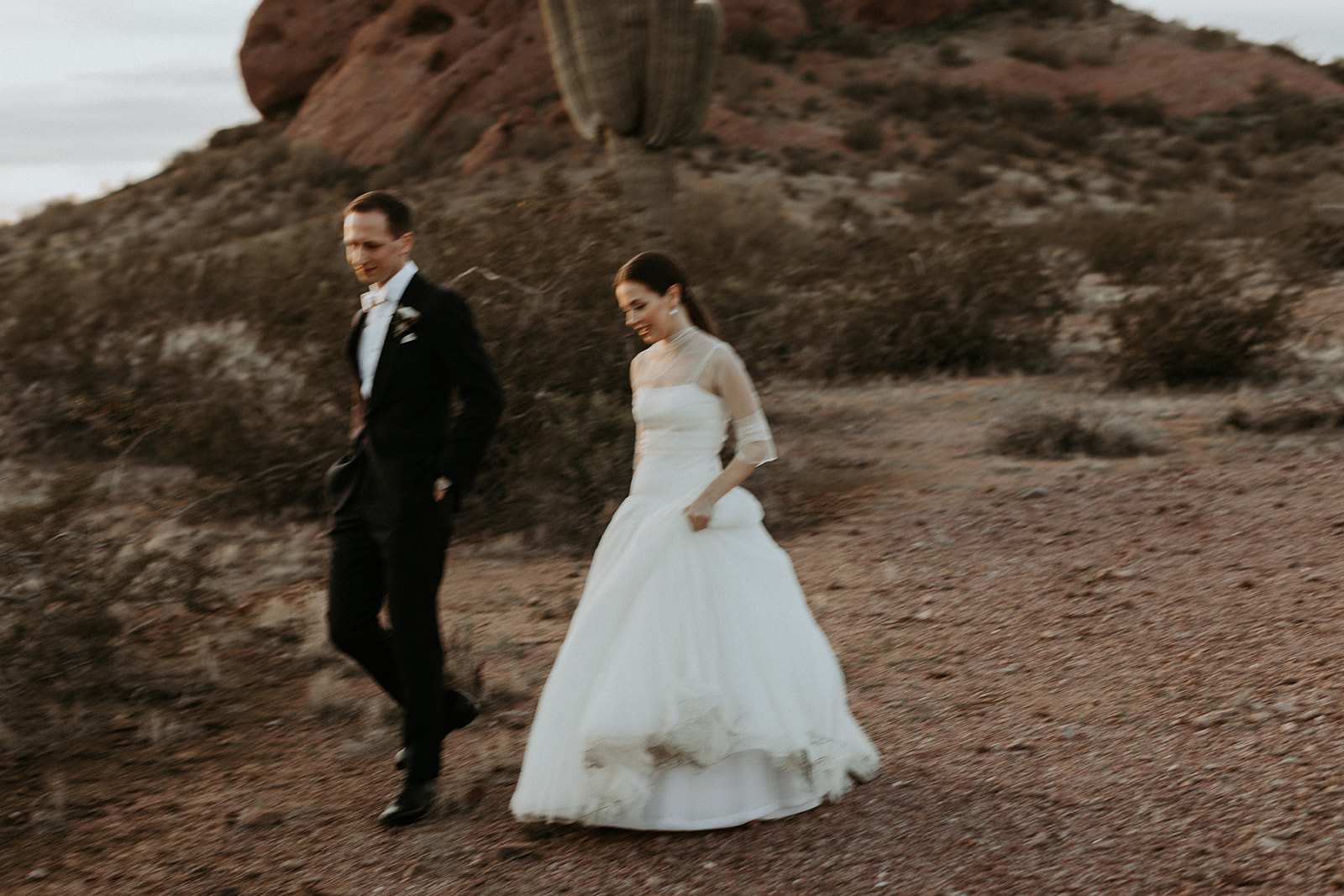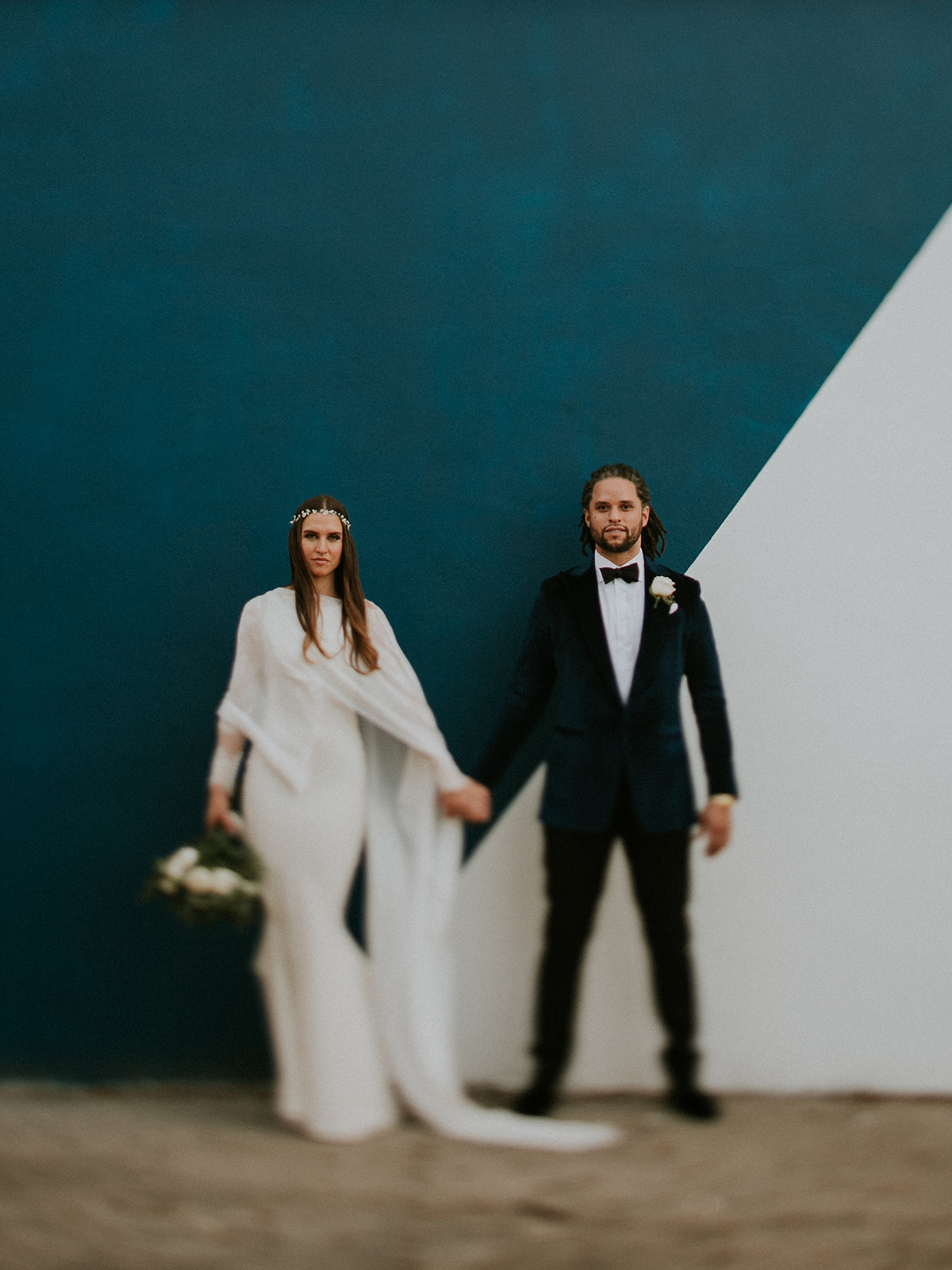Beyond My Lens: Photographer Katie Levine’s Storytelling Podcast, Supported by Narrative
Blog
By Kyle Wilson
Alisha Tova is a photographer and creative entrepreneur based in Chicago specializing in wedding, family, and personal branding photography. She shares her insights on balancing creativity with the demands of running a photography business while continuing to evolve as an artist. Dive in to learn from Alisha’s experience.
KW: You’re really busy right now with weddings and your associates, right?
AT: Yes, I have three associates and then a few people that help me. We'll do about 50 weddings this year, similar to last year’s 55 to 60.

KW: What is your proudest moment in your career thus far?
AT: My proudest moment and my worst decision coincide with one another. So my proudest moment was when I signed a lease on my studio space in Wicker Park. Once I got into the space, people booked me for family and studio shoots. But I definitely made a huge mistake in signing my personal name to my business lease and just not getting around to having business insurance right away. For anyone getting a studio, I encourage you to always have your business LLC protecting you. It's embarrassing, honestly, for me to say because I'm a business owner, I'm successful, and we do 50 weddings a year, but we're artists, and we're creative thinkers. To say that that was my worst business decision - not protecting myself fully - is an understatement. I've learned so much from it, and you can only grow from those types of things.
KW: What's been your best business decision?
AT: One was moving from New York to Chicago. I always said I'd love to be a big fish in a small pond, and that's exactly what Chicago brought to me. I am more of a community leader out here, my work is being highlighted, and I'm making connections with people, which is harder to do in New York. My second best business decision was to bring my first associate on, Momoko Fritz. We took a leap with that, and it's really paid off financially and emotionally. It's been great for my business and a good challenge for me to grow and scale at a moment when I felt stagnant.
KW: I ask every photographer: what's your problem?
AT: I'm hitting nine years of photographing weddings, which is crazy to think about, but my steam is just not where it used to be. I had such a zest for growing and getting clients, getting the coolest weddings, and working all the time. I've done all that, and now I have this steady flow of bookings year after year. It's less of 'how do I scale' and more of 'how do I just keep growing and learning from a mental standpoint'? How do I serve my community, and how do I serve the new, younger photographers that are coming up?
KW: Do you feel that plays a role on the day of a shoot?
AT: When I was younger, it was always the mentality to hustle and work. Now that I'm in my 30s, it would be nice to have a few more freed up weekends. That's one nice thing about having associates: you can have someone else work a wedding and know that you're passively making a little bit of money, not as much as if you were shooting it yourself, but there's some type of income coming in, and you don't need to be physically present. Once I'm engulfed in the couple's lives and family, time stands still a little bit for me. I get into this intense presence with whatever I'm doing there. For me, photography has always been about a deep presence around people. It's a blessing and a curse, though, because I'm so engulfed that I forget about my life for a moment.
KW: You mentioned wanting to pass down knowledge to newer and hungry photographers. Are your associate shooters people who have had a business for a while, or are they trying to learn things? Is it a relationship where you've given them the opportunity and all this experience to run off on their own at some point?
AT: I don't want to speak for them, but I think it's been an amazing experience for them. The main thing I've heard from people who want to work with me is you get such amazing clients, and they really allow you to use your art in a way that's unique and special; how do you get those clients? If I feel like [my associates] have what it takes to get to that point, it's really rewarding to put in my time and help them grow as photographers. There are a lot of things that people skip steps on or don't even realize, little micro things that are pivotal to growing your work and eventually landing the clients.

KW: Are there spaces you're trying to educate or learn more about this year as you struggle with having the zest for it?
AT: I am trying to learn a deeper sense of curation and imagery for myself. Obviously, I want to keep evolving my art. It's just about continuing to strengthen my work and learning a little bit more about the film photography aspect of weddings because that's how I started photography, and I kind of lost it once I started shooting so many weddings. Also, just learning more long-term business strategies and business practices. A lot of my life is shooting, editing, and finishing. I haven't done a long-term project in a while and am eager for that.
KW: You mentioned that you want to improve image curation. What does that curation process look like now for you as you're adding associates, trying to feel invigorated by your work, and being a major part of the local community?
AT: For me, it's not about the single image but the piece as a whole piece of art. A lot of newer photographers focus so much on the things they want to focus on, and then you feel like so much of the day was lost. It's been interesting for me to cull and edit other people's work because I'm sitting here thinking, weren't people hugging after the ceremony? Like, where is that? It's been really fun to help guide my associates on why we're doing this.

KW: Are you culling all of your associates' work for your studio?
AT: Yeah, they'll do a light pass-through, and then I'll do it. I know it sounds daunting, but I've trained them to not overshoot and to shoot like a film photographer, even when you're shooting digital. We could shoot anywhere from 1900 to 3200 images for a wedding, and we have pretty much kept the month-to-six-week turnaround time for wedding delivery.
KW: That's an incredible turnaround, You've got a pretty good workflow going on. I still personally like to put my eyeballs on every image. Are you doing that, having so many associates, or are you leaning into trusting the process or the programming?
AT: I try not to go individually but to use my monitor to have four images across a large grid. For the family portraits and portraits with multiple people, using the eye select [feature of Narrative Select] when I zoom in makes family portraits go by so much faster. I started building relationships with companies [like Narrative] because I really believe in their products. They're absolutely integral to my day-to-day use. It has helped me actually grow my business and my workflows. Some photography products I'm most gung-ho on would be Narrative for culling, Pic-Time for gallery selection, and Flodesk for email. And I was also one of the first people to use Honeybook. I love my photo software.
KW: I really wish I had Narrative Select five years ago when I was shooting 40 or 50 weddings a year. It can tell me if 12 people's faces are in focus - it's insane.
AT: It is. And that’s as gear techie as I'll go. I'd rather have more conversations around software than cameras because it doesn't matter as much what kind of camera you're using; it matters if you're a good photographer or not.
KW: Your work is so emotional and artistic. It feels like scenes from a novel.
AT: My best work is when I feel I have a deep sense of duty to provide my point of view to a client. And when I can tap into that, it shows in my work. I've just learned to know what I'm good at. I've really taken a lot of interest in how a photo makes you feel. So, I love curating because it's such an important phase of your art.

KW: What do you have coming up this year that you're stoked about or excited for? Do you have any workshops?
AT: We have a fun dinner event at the studio this week, and I hope to do more of that stuff in the studio, getting people together in a way that feels productive, not gimmicky or salesy.
KW: The space that you're in is just so freaking gorgeous. If you're a Chicago-based photographer and you're looking for a really beautiful peer space in Wicker Park, it's so perfect for any of your needs. Anyway, I really appreciate the time today.
AT: It's been great. This is a nice break in my day.
Follow Alisha on Instagram @alishatova and check out the incredible timeless photography produced by her team at Tova Studios.
This interview has been edited and condensed. Check out “The Photographer’s Problem: A Narrative Podcast” streaming now on YouTube or Spotify for the full, unedited interview and more inspiring stories and an immersive look into the intricate world of photography.